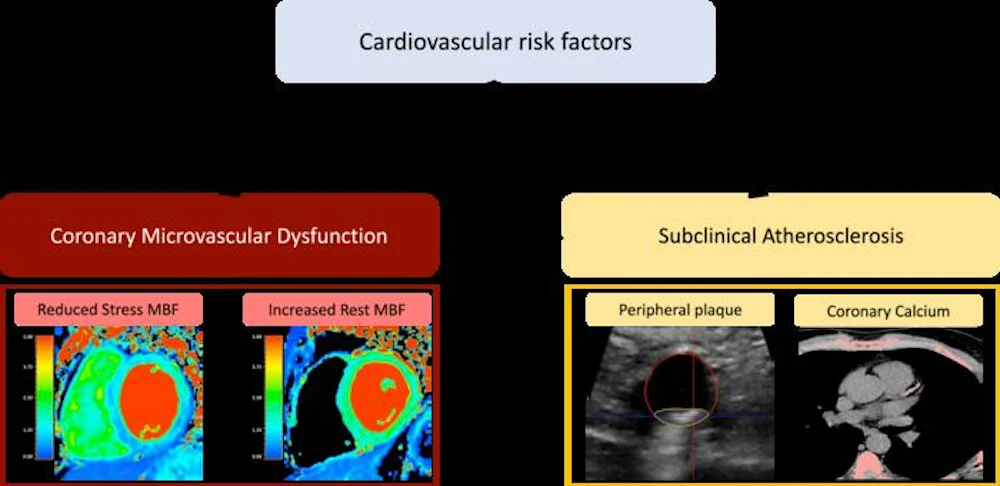A study conducted at the Centro Nacional de Investigaciones Cardiovasculares (CNIC) in Madrid, Spain, has provided vital insights into how cardiometabolic risk factors and subclinical atherosclerosis affect the network of microvessels supplying the heart in asymptomatic, middle-aged individuals. The study is published in JACC: Cardiovascular Imaging.
Findings from this research underscore the importance of evaluating coronary microvascular function in people with no known cardiovascular disease to better predict the progression of atherosclerosis and assess future cardiovascular risk.
Coronary microvascular function refers to the ability of the heart’s small vessels to regulate blood flow and oxygen supply, both essential for maintaining heart health. The researchers used cardiac magnetic resonance imaging (MRI) to measure blood flow in the coronary microvasculature of 453 symptom-free, middle-aged participants from the PESA-CNIC-Santander (Progression of Early Subclinical Atherosclerosis) study.
The study found that impaired coronary microvascular function was closely linked to cardiometabolic risk factors such as metabolic syndrome, insulin resistance, and diabetes, as well as the presence of subclinical atherosclerosis in both peripheral and coronary arteries.
The research suggests that coronary microvascular function could be a key predictor of long-term cardiovascular risk in seemingly healthy individuals. Therefore, doctors should consider microvascular dysfunction as an early marker in cardiovascular risk assessments.
Study researchers emphasised the value of studying the PESA population. By focusing on microvascular function in this population, the researchers were able to uncover patterns that might go unnoticed in other groups, offering a unique opportunity to implement primary prevention strategies before clinical symptoms appear.
Dr Valentín Fuster, General Director of CNIC and leader of the PESA study, highlighted the clinical importance of the findings. He stated that these results show that coronary microvascular dysfunction is a crucial indicator that should be integrated into routine clinical practice. Recognising and treating individuals with cardiometabolic risk factors before cardiovascular symptoms emerge could revolutionise prevention and reduce cardiovascular events.
During a three-year follow-up, participants with better coronary microvascular function at the study’s onset experienced less progression of atherosclerosis. This underscores the potential of coronary microvascular function as a valuable marker for assessing cardiovascular risk and preventing future heart-related events.
Overall, the study demonstrates that, in a large group of asymptomatic middle-aged adults with no ischemic heart disease, the presence of cardiometabolic risk factors and systemic atherosclerosis is linked to impaired coronary microvascular function. The greater the burden of risk factors and subclinical atherosclerosis, the more severe the impairment of microvascular function. Conversely, preserved microvascular function is associated with a reduced risk of atherosclerosis progression.
Source: Centro Nacional de Investigaciones Cardiovasculares Carlos III (F.S.P.)
Image Credit: Centro Nacional de Investigaciones Cardiovasculares Carlos III (F.S.P.)






